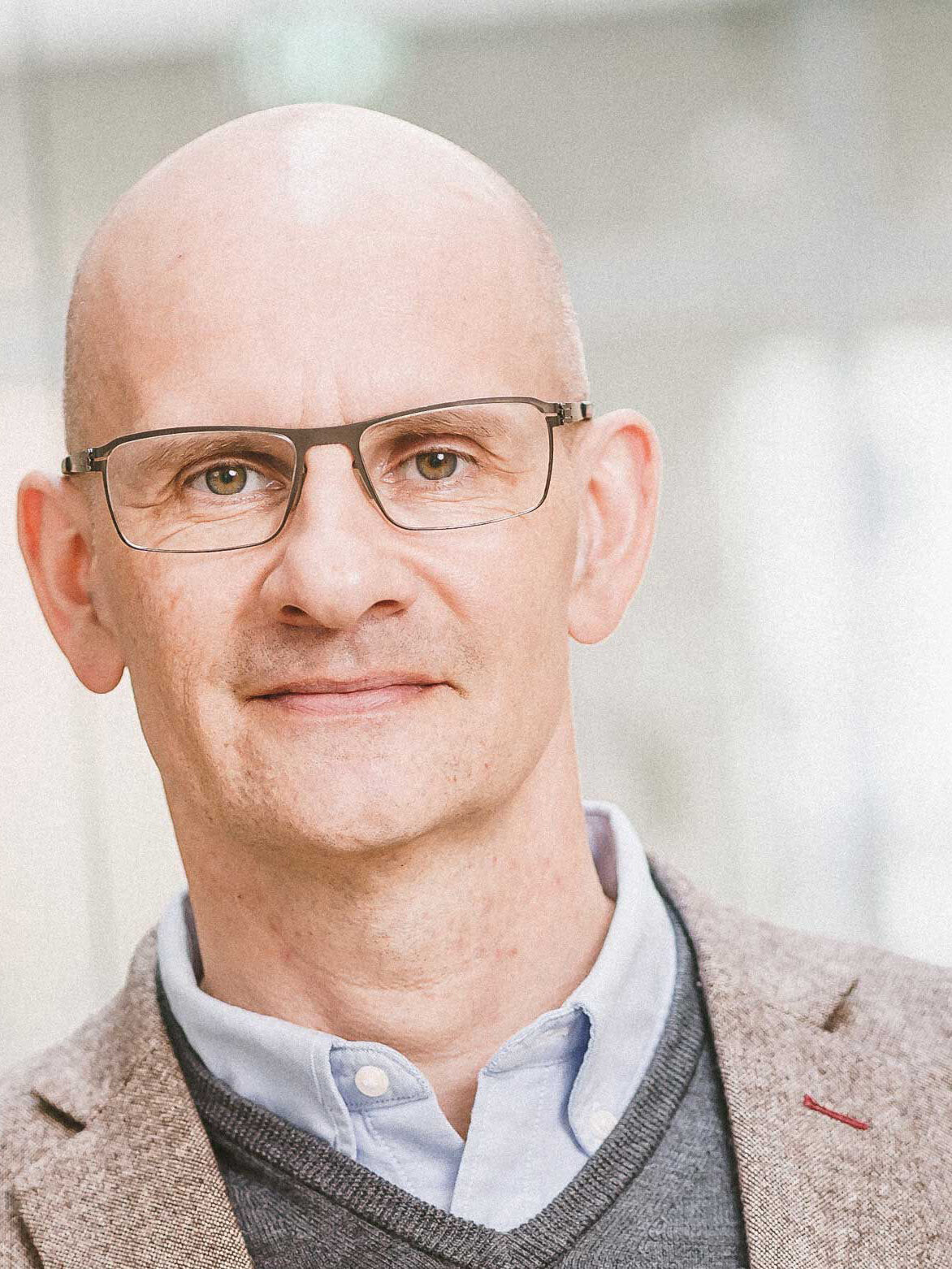
Jonas Obleser
GROUP LEADER
Jonas studied Psychology with a minor in Statistics and got his degree from the University of Konstanz in 2004. After doing research at University College London and at the Max Planck Institute in Leipzig, he has held a Chair in Physiological Psychology and Research Methods at the University of Lübeck since 2016.
Jonas’ main interest lies in neural dynamics, that is, the moment-to-moment brain states as well as more stable brain traits that characterise our perception and behaviour. An important question for Jonas is whether there are features of neural dynamics that are especially adaptive or protective to our health as we get older. His preferred model system still is the listening human being.
Since 2023, Jonas Obleser has been overseeing and coordinating the scientific plans and funding acquisition for the new research building Lübeck Environment for Minds and Machines in Interaction (LEMMI) on the Campus of Lübeck University (project won 2024; funding period 2025–2030f.).
Jonas’ research has been supported by the ERC (2016–2021), the DFG (2015—), the Max Planck Society (2010–2015) and various partners in the hearing aid industry. Jonas serves as handling editor for the Journal of Neuroscience and eLife.
Jonas loves typography, which can be a pain when you design figures or manuscripts with him.
Declaration of interest
I am a full-time professor at the University of Lübeck, Germany. My salary is paid by the state of Schleswig-Holstein (Beamter, civil servant) through the university.
Industry collaborations. I occasionally collaborate with or advise partners from the hearing-aid and audio-technology industries on scientific or translational projects (Widex / Sivantos Audiology and its legal predecessors, since 2012; Cochlear Ltd., 2019–2022; Oticon Foundation, 2015–2017). These activities are non-exclusive, conducted under institutional contracts, and have no bearing on the design, analysis, or publication of my academic research. As of 2025, I hold no equity or intellectual-property interests in any commercial enterprise related to my research.
Academic service. I serve (or have served) on scientific advisory boards and review panels for academic and funding organisations, notably the Deutsche Forschungsgemeinschaft (Study Section Neuroscience, 2024–2028) and the Max Planck Society (Chairman of a Scientific Advisory Board, 2023–2026). None of these roles involved financial remuneration beyond standard honoraria or travel reimbursements.
Consulting. I have occasionally provided scientific and statistical consulting services to pharmaceutical and biomedical companies or their partners, at standard academic consulting rates.
Editorial roles. As an editorial board member, I have received financial remuneration from the Society for Neuroscience (Journal of Neuroscience, since 2019), from eLife Publications Ltd. (eLife, since 2019), and from Elsevier Ltd. (2015–2018).
To the best of my knowledge, no current or past engagement presents a conflict that would influence my scientific judgment, teaching, or editorial work.
This declaration is provided in the interest of transparency and will be updated as needed.
Research funding. Over the years, my research has been funded primarily by public agencies, including the European Union and its various funding programmes (such as the European Research Council), the Deutsche Forschungsgemeinschaft (DFG), the Federal Ministry of Education and Research (BMBF), and the State of Schleswig-Holstein.
J.O., November 2025



